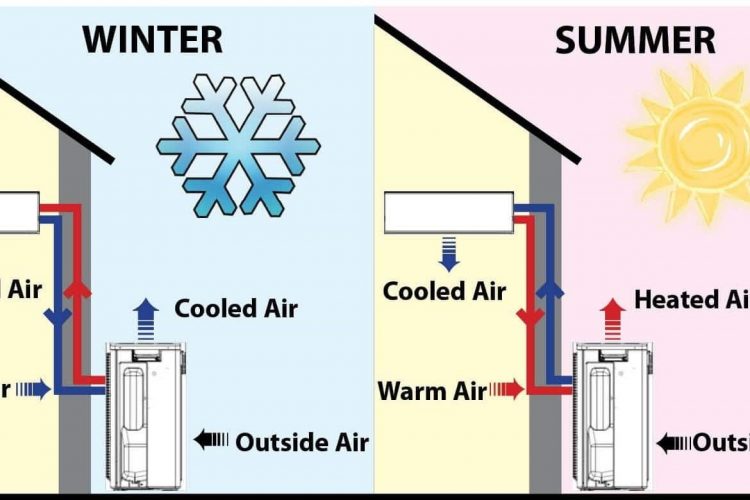A heat pump is a mechanical device that uses a small amount of energy to move thermal energy from one location to another. In the winter, a heat pump extracts heat from the outdoor air and transfers it indoors, providing a warm environment for your family. The process is reversed in the summer, when the heat pump moves heat from your home to the outdoors, helping to keep your home cool and comfortable. Heat pumps are highly efficient and can provide significant savings on your energy bill. When choosing a heat pump, it is important to consider the climate in your area and the size of your home. A qualified HVAC contractor can help you select the best heat pump for your needs.
The different types of heat pumps available on the market today
Heat pumps are devices that transfer heat from one location to another. There are three types of heat pumps: air-source, ground-source, and water-source. Air-source heat pumps are the most common type and use air from the outside to heat or cool a home. Ground-source heat pumps use the earth’s natural heat to warm a home in the winter and cool it in the summer. Water-source heat pumps use water from a lake or pond to heat or cool a home. Heat pumps are an efficient way to heat and cool a home because they move heat instead of creating it. For example, an air-source heat pump will take heat from the air outside and transfer it inside on a cold day. In the summer, the process is reversed and the air-source heat pump will take heat from inside your home and transfer it outside. Heat pumps are a cost-effective way to heat and cool a home, and they are becoming increasingly popular as energy costs continue to rise.
How to choose the best heat pump for your home
When choosing a heat pump for your home, there are several factors to consider. First, you need to determine the size of the unit that is appropriate for your home. Too small a unit will not be able to effectively heat your home, while too large a unit will result in higher energy bills. You also need to consider the climate in your area. If you live in an area with mild winters, you can choose a less powerful unit. However, if you live in an area with very cold winters, you will need a more powerful unit. Another important factor is the efficiency of the unit. More efficient units will cost more upfront, but they will save you money on your energy bills over time. Finally, you need to decide whether you want a single-stage or two-stage unit. A single-stage unit is less expensive, but it will only operate at full capacity when the temperature outside is very cold. A two-stage unit is more expensive, but it will run at a lower capacity most of the time, which can save you money on your energy bills.
Installation tips for heat pumps
Heat pumps are a popular choice for home heating and cooling, as they are relatively energy efficient and can be used in a wide range of climates. If you are thinking of installing a heat pump in your home, there are a few things to keep in mind. First, it is important to have the unit properly sized for your space. An undersized unit will have to work harder to heat or cool your home, while an oversized unit will be less effective and may result in discomfort. Second, pay attention to the installation location. The unit should be placed in an area with good airflow and adequate clearance for maintenance. Third, make sure that the refrigerant lines are properly insulated. This will help to prevent leaks and minimize energy loss. By following these tips, you can ensure that your heat pump is installed correctly and will provide years of comfortable heating and cooling.
How to properly maintain your heat pump for optimal performance
Heat pumps are one of the most efficient ways to heat and cool your home, but they require regular maintenance to keep them running smoothly. One of the most important things you can do is to have your heat pump serviced by a qualified HVAC technician in Gaithersburg at least once a year. This will ensure that the unit is properly cleaned and lubricated and that any potential problems are caught early. You should also make sure to keep the area around your heat pump clear of debris, as this can impede airflow and cause the unit to work harder than necessary. By following these simple tips, you can maintain your heat pump for optimal performance.

